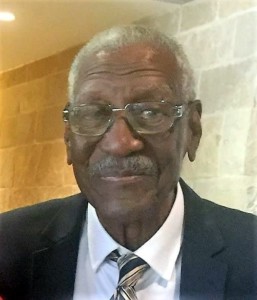Was Beethoven Black? Probably Not, but These Unsung Composers Were
A music scholar examines the history of the decades-old theory, and what its permanence tells us about who is considered ‘canon’ in classical music
Image: Debate over Beethoven’s race sparked once again on Twitter last week. He is depicted here in a portrait by August Klober from 1818. (Photo by Universal History Archive / Getty Images)
(Smithsonian Magazine) An old question circulated on Twitter last week: Was Ludwig van Beethoven, the famous German composer, a black man?
In short: probably not. Many scholars over the years have refuted the theory, but the resurgent question serves as an opportunity to highlight the pressing discussion about inequality and systemic racism in classical music and its history, scholars say.
An old question circulated on Twitter last week: Was Ludwig van Beethoven, the famous German composer, a black man?
In short: probably not. Many scholars over the years have refuted the theory, but the resurgent question serves as an opportunity to highlight the pressing discussion about inequality and systemic racism in classical music and its history, scholars say.
The social media conversation about Beethoven’s origins was sparked by a resurfaced 2015 article in The Concordian, the student-run publication for Concordia College, reports J’na Jefferson for The Root. But the theory that Beethoven was black has been around for decades. In 1990, musicologist and historian Dominique-René de Lerman, writing in the Black Music Research Journal, cited evidence of the claim being discussed as long ago as 1907. Historian Joel Augustus Rogers helped to popularize the theory in the 1940s, as Nicholas T. Rinehart reports in a 2013 article in the journal Transition.
Those who argue in favor of Beethoven’s black heritage point to contemporary accounts of his likeness that describe the composer in ways stereotypically associated with people of African descent. In just one example, a 1969 article in the Chicago Daily Defender cites Frau Fischer, an acquaintance of Beethoven’s, who described the composer as “Short, stocky, broad shoulders, short neck, round nose, blackish-brown complexion.” (more)
Texas HBCUs continue to provide haven for black students in times of unrest
 (Houston Chronicle) When D’Angelo Colter went to high school in Grapeland, Texas, he was one of seven black students in a school of more than 100. He felt the weight of his blackness in a majority-white town through the stereotypes and lack of support from classmates when he faced racism, he said.
(Houston Chronicle) When D’Angelo Colter went to high school in Grapeland, Texas, he was one of seven black students in a school of more than 100. He felt the weight of his blackness in a majority-white town through the stereotypes and lack of support from classmates when he faced racism, he said.
But when Colter decided to attend Texas Southern University, Houston’s historically black college, he felt a sense of belonging that he said he’d never felt in an academic setting. Suddenly, he was surrounded by people who looked like him.
It was almost a culture shock, he said.
“You learn there’s so much diversity within in black culture,” Colter, 20, said. “It’s very inspirational.”
More than that, Colter, a rising junior, said he experienced a new level of community. Faculty and staff, accessible by personal phone numbers and work emails, were willing to give advice and talk career goals and aspirations outside of class time or office hours, and conversations about their experiences with racism weren’t taboo.
For many black students, their experiences at Texas’ nine historically black colleges and universities — two of which are in the Houston area — have been similar, and in the wake of the death of George Floyd, a black man with Houston roots who died in police custody in Minneapolis in May, many are reflecting on their time at these institutions.
Prairie View A&M President Ruth Simmons, who also grew up in Grapeland, received her education at Dillard University, a small HBCU in New Orleans that she credits for preparing her for the pursuit of her doctorate at Harvard University in the late 1960s. Life at the predominately white Ivy League school felt alienating at first, she said, “but I was able to handle that. Dillard had prepared me for what I was going to face.” (more)
Former Council Member Berl Handcox, who broke the color barrier, dies at 88
(Austin Monitor) Berl Handcox, Austin’s first elected African American City Council member since Reconstruction, has died at the age of 88. Handcox was elected as part of the seven-member Council on May 1, 1971, and reelected on April 7, 1973. He received about 62 percent of the vote for both elections. He resigned from his seat in the spring of 1975 to serve as the head of the Texas Equal Employment Opportunity Office, part of the governor’s office.
Prior to 1971, City Council had just two Black Council members. The first, Henry Green Madison, was appointed by Gov. E.J. Davis in 1871. According to the Austin History Center, “The first elected black city council member was William G. Wilson, from Ward 10, who served as alderman from 1883 to 1884.”
Council Member Natasha Harper-Madison said via email, “Berl Handcox kicked down a door that had been sealed to African Americans in Austin for nearly a century. I would not be where I am today without him. His overdue achievement is one of those major milestones that mark the protracted but progressive march towards justice and equality here in our city. We owe it to him to carry on that march with his memory firmly in our minds and tenderly in our hearts.” (more)
TIPHC Bookshelf
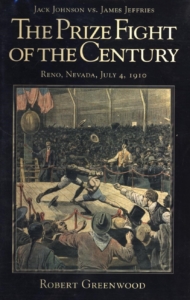 Published scholarship on black history in Texas is growing and we’d like to share with you some suggested readings, both current and past, from some of the preeminent history scholars in Texas and beyond. We invite you to take a look at our bookshelf page – including a featured selection – and check back as the list grows. A different selection will be featured each week. We welcome suggestions and reviews. This week, we offer, “Jack Johnson vs. James Jeffries, The Prize Fight of the Century,” by Robert Greenwood.
Published scholarship on black history in Texas is growing and we’d like to share with you some suggested readings, both current and past, from some of the preeminent history scholars in Texas and beyond. We invite you to take a look at our bookshelf page – including a featured selection – and check back as the list grows. A different selection will be featured each week. We welcome suggestions and reviews. This week, we offer, “Jack Johnson vs. James Jeffries, The Prize Fight of the Century,” by Robert Greenwood.
Greenwood makes a case that the 1910 interracial bout remains the “Fight of the Century.” The gate was the largest recorded up to that time — 18,000 fans showed up, more than could be seated. The $100,000 purse was a prize fight record — with another $100,000 offered for the motion picture rights. It renewed interest in boxing when the sport had been banned in every state but Nevada. The correspondents sent to cover the contest included Jack London, John L. Sullivan, Bat Masterson, Rube Goldberg and Rex Beach. Coming out of a six-year retirement, former champion Jeffries was, of course, the “Great White Hope.” After Johnson became champion, of course, the federal government went to work to bring down this “uppity negro,” framing him on charges of “transporting a (white) woman across state lines for immoral purposes” — even though he had never met the 18-year-old Lucille Cameron until after she came to Chicago. Johnson stayed in shape, fighting several exhibition bouts while in prison, and upon his release at age 42 challenged Jack Dempsey for the championship. But the racist Dempsey refused to fight a black man. Arthur Ashe later called Johnson “the most significant black athlete in history.”
This Week in Texas Black History
June 30
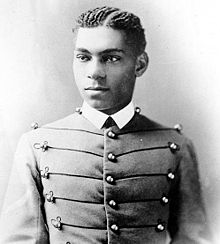
Lt. Henry O. Flipper, the first black graduate of West Point, was court-martialed and dismissed from the Army on this day in 1882 for “conduct unbecoming an officer and a gentleman.” Flipper was an officer in the Tenth Cavalry serving at Fort Davis (Texas) when he was accused of embezzlement as commissary officer. Flipper maintained his innocence until his death (May 3, 1940) and waged a lifelong battle for reinstatement in the Army. In December 1976, when a bust of him was unveiled at West Point, the Department of the Army granted Flipper an honorable discharge, dated June 30, 1882. An annual West Point award in honor of Flipper is presented to the graduate who best exemplifies “the highest qualities of leadership, self-discipline, and perseverance in the face of unusual difficulties while a cadet.”
July 1

University of Houston and Olympic sprint and long jump star Carl Lewis was born on this date in 1961 in Birmingham, Alabama. Lewis graduated from Willingboro (N.J.) High School in 1979 and entered UH as the top-ranked high school track athlete in the country. He kept his top national ranking in the long jump and the 100-meter dash at the 1981 National Collegiate Athletic Association (NCAA) indoor championships and was the first athlete to win two events at an NCAA championship. As an Olympian, Lewis became the first African-American athlete since Jesse Owens in 1936 to win four gold medals in Olympic competition. Lewis won nine gold medals combined in the 100 and 200 meter sprints, the 4×100 meter relay, and the long jump, in four consecutive Olympics – 1984 Los Angeles, 1988 Seoul, 1992 Barcelona, and 1996 Atlanta. He won gold eight times in World Championships competitions. In December 2001, Lewis was elected to the National Track and Field Hall of Fame, was voted “Sportsman of the Century” by the International Olympic Committee, and “Olympian of the Century” by Sports Illustrated magazine.
July 1
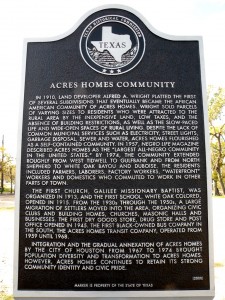
The Acres Homes Transit Company became the first African-American-owned bus franchise in the South on this day in 1959 when it received state certification. The predominantly black Acres Homes residents lived outside Houston’s city limits and nine miles northwest of downtown and had petitioned city hall for a permit to operate the franchise. The Yale Street Bus Line had ceased commuter service to the area the previous year. Four AHTC buses made 43 round trips a day between downtown Houston and Acres Homes, which was annexed to Houston in 1967.
July 3
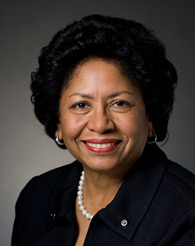
Ruth J. Simmons was born on this day in 1945 in Grapeland, Texas and 56 years to the day was sworn in as the 18th president of Brown University in 2001, becoming the first black president of an Ivy League school and the first female president at Brown (founded in 1764). Simmons was the youngest of 12 children born to a sharecropper father and a mother who worked as a maid. In 1995, Simmons became the first African-American woman to head a major college or university when she was selected as president of Smith College, which she led until 2001. She also served as Vice Provost at Princeton University, and a Provost at Spelman College. Simmons graduated from Phillis Wheatley High School in Houston and Dillard University, a historically black college in New Orleans. She earned her Ph.D. in Romance Languages and Literatures from Harvard. In June 2017, she was named interim president of Prairie View A&M University, and on December 4, 2017, she was officially named the school’s eighth president.
July 4

On this date in 1867, the Texas Republican Party was formed at a convention in Houston with African-American delegates outnumbering whites by a total of about 150 to 20. Blacks, comprising about 90 percent of the party throughout Reconstruction, would set the foundation for the party. Forty-four black Republicans would serve in the state legislature. The second State GOP Chairman, Norris Wright Cuney, an African-American from Galveston led the Party from 1883 to 1897 and is said by historians to have held “the most important political position given to a black man of the South in the nineteenth century.”
July 4
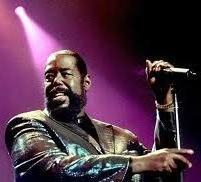
On this date in 2003, R&B singer and composer Barry White, a Galveston native, died at age 58 of renal failure in Los Angeles. A five-time Grammy Award winner, White’s gravelly, seductive, bass voice earned him 106 gold and 41 platinum albums, 20 gold and 10 platinum singles, with worldwide sales in excess of $100 million. White had suffered with high blood pressure for many years and then diabetes.
July 4
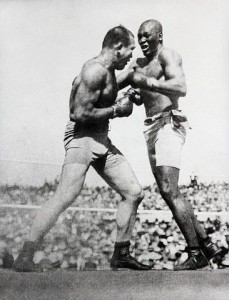
In what was billed as “The Fight of the Century,” Galveston’s Jack Johnson soundly defeated Jim Jeffries, “The Great White Hope,” on this day in 1910 before a mostly white crowd of 22,000 fans in Reno, Nevada to remain as world heavyweight champion. Jeffries came out of a five-year retirement from his undefeated career to fight the racially reviled Johnson. Jeffries said, “I am going into this fight for the sole purpose of proving that a white man is better than a Negro.” Promoters incited the crowd to chant “kill the nigger.” However, the bout was scheduled for 45 rounds, but was stopped in the 15th after Johnson twice knocked Jeffries down. The outcome produced race riots in dozens of cities with some of the incidents the result of whites interrupting celebrations of jubilant blacks. Police also interrupted several attempted lynchings.
Blog: Ron Goodwin, Ph.D., author, PVAMU history professor
Ron Goodwin is an assistant professor of history at Prairie View A&M University. Even though he was a military “brat,” he still considers San Antonio home. Like his father and brother, Ron joined the U.S. Air Force and while enlisted received his undergraduate degree from Texas Lutheran University in Seguin, Texas. After his honorable discharge, he completed graduate degrees from Texas Southern University. Goodwin’s book, Blacks in Houston, is a pictorial history of Houston’s black community. His most recent book, Remembering the Days of Sorrow, examines the institution of slavery in Texas from the perspective of the New Deal’s Slave Narratives.
Recent Posts
More Uncomfortable Truths
In February 2020, I was asked to contribute an opinion piece for the PVAMU website. I submitted an essay describing what I called an Uncomfortable Truth of Black History Month. That “truth” focused on the black community’s continual efforts to prove it is worthy of recognition as contributors to American society. Even more so, I argued, it is time the black community finally acknowledges that the subliminal need for acceptance is based on the… (more)
It’s OK now
Hopefully, this COVID-19 pandemic will end soon, and life can get back to normal. At the very least, as a society, I hope we’ll learn how to live with it. But one day, our intelligentsias will analyze every governmental action since February and March of 2020, especially those of the President. Recent policies have addressed the numbers of individuals who are out of work because of the “stay at home” directives. It’s been called… (more)
Submissions wanted
Historians, scholars, students, lend us your…writings. Help us produce the most comprehensive documentation ever undertaken for the African American experience in Texas. We encourage you to contribute items about people, places, events, issues, politics/legislation, sports, entertainment, religion, etc., as general entries or essays. Our documentation is wide-ranging and diverse, and you may research and write about the subject of your interest or, to start, please consult our list of suggested biographical entries and see submission guidelines. However, all topics must be approved by TIPHC editors before beginning your research/writing.
We welcome your questions or comments. Please contact Michael Hurd, Director of TIPHC, at mdhurd@pvamu.edu.

